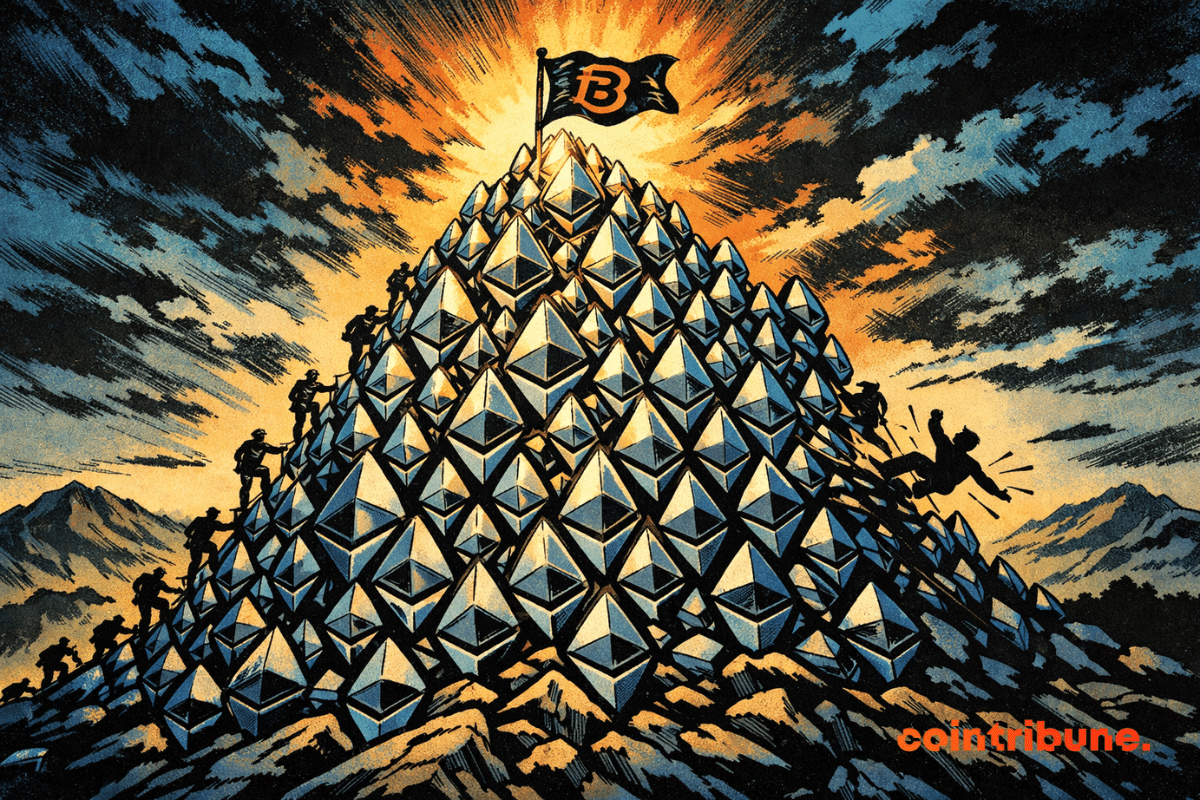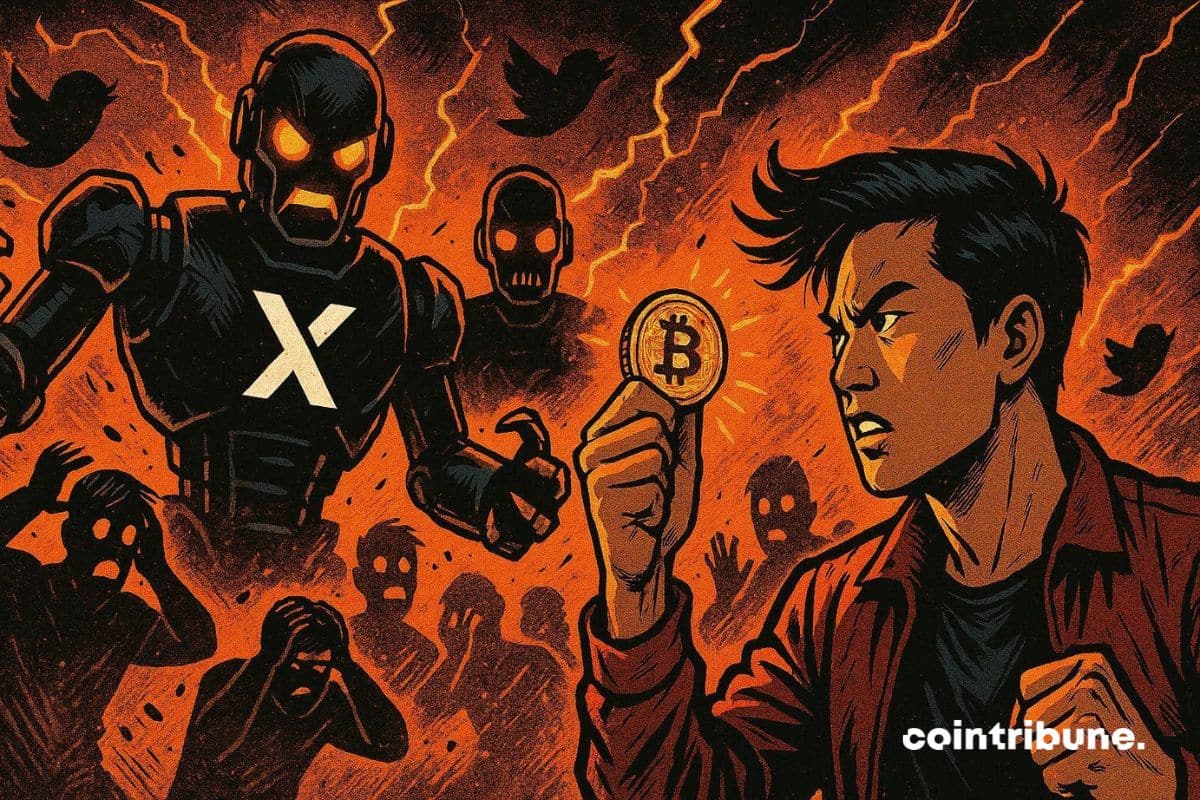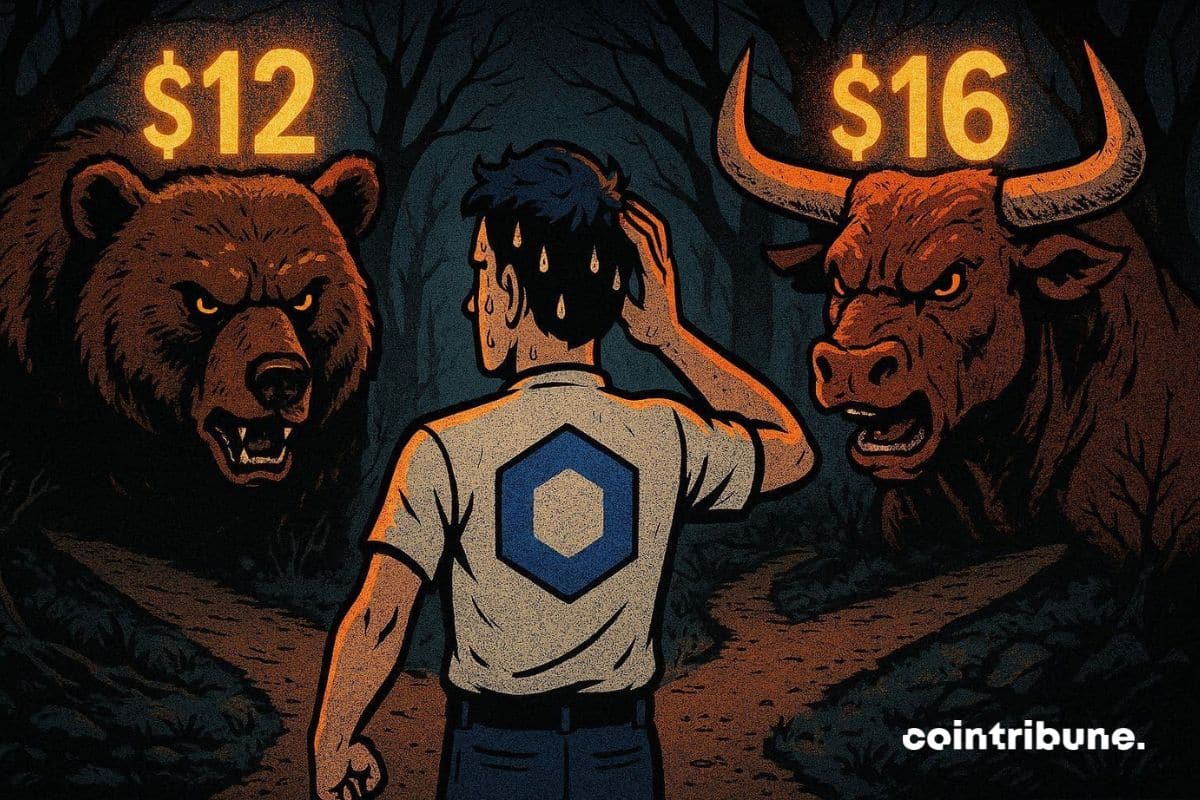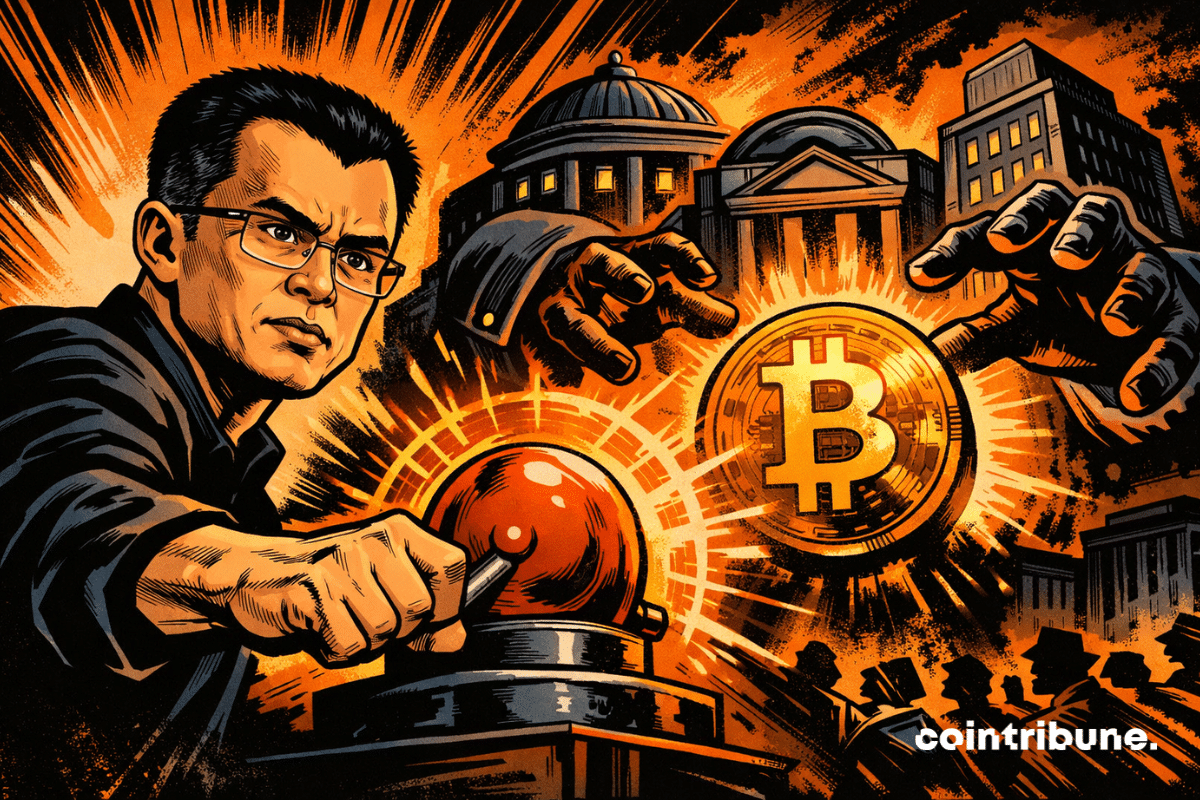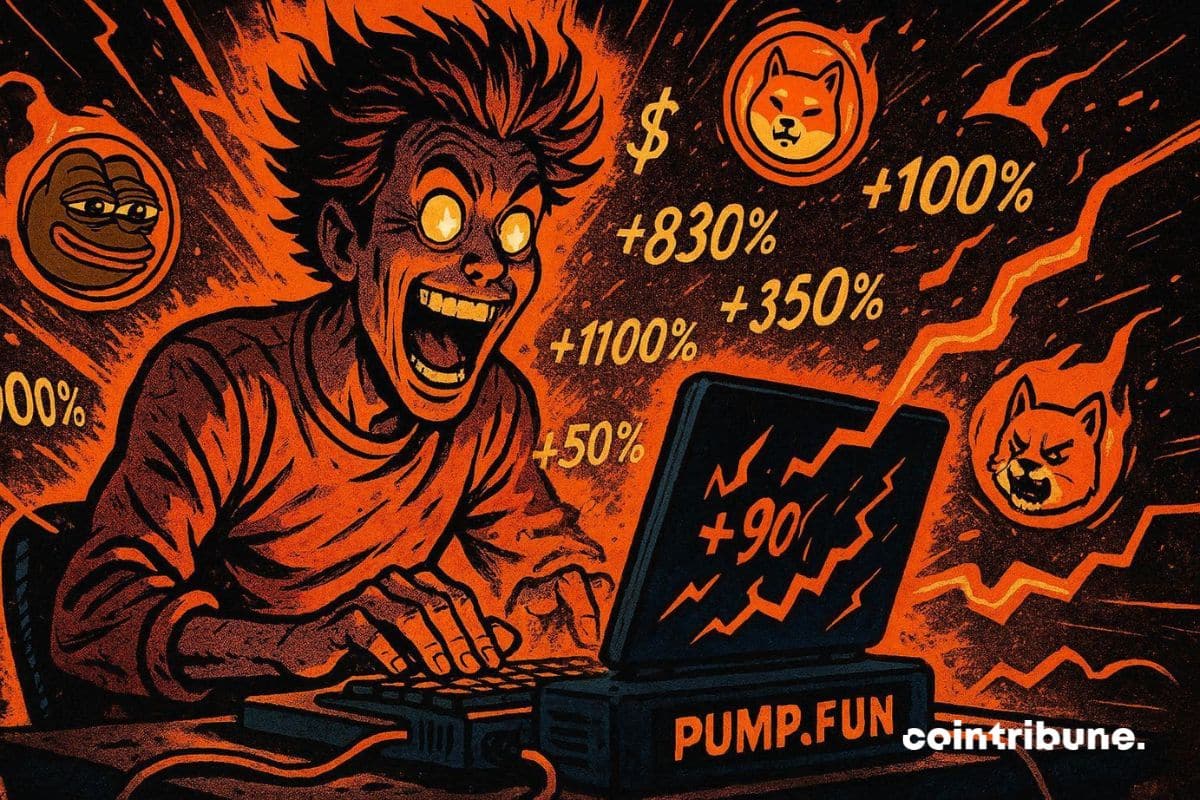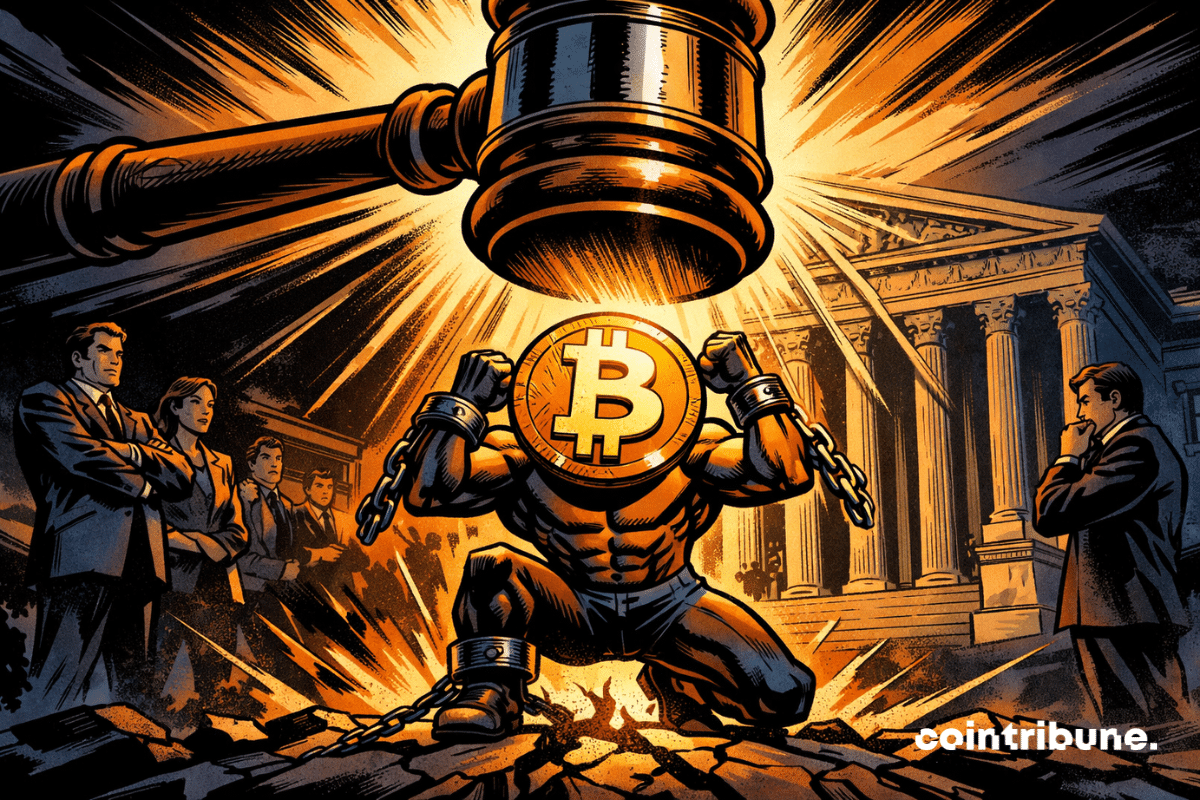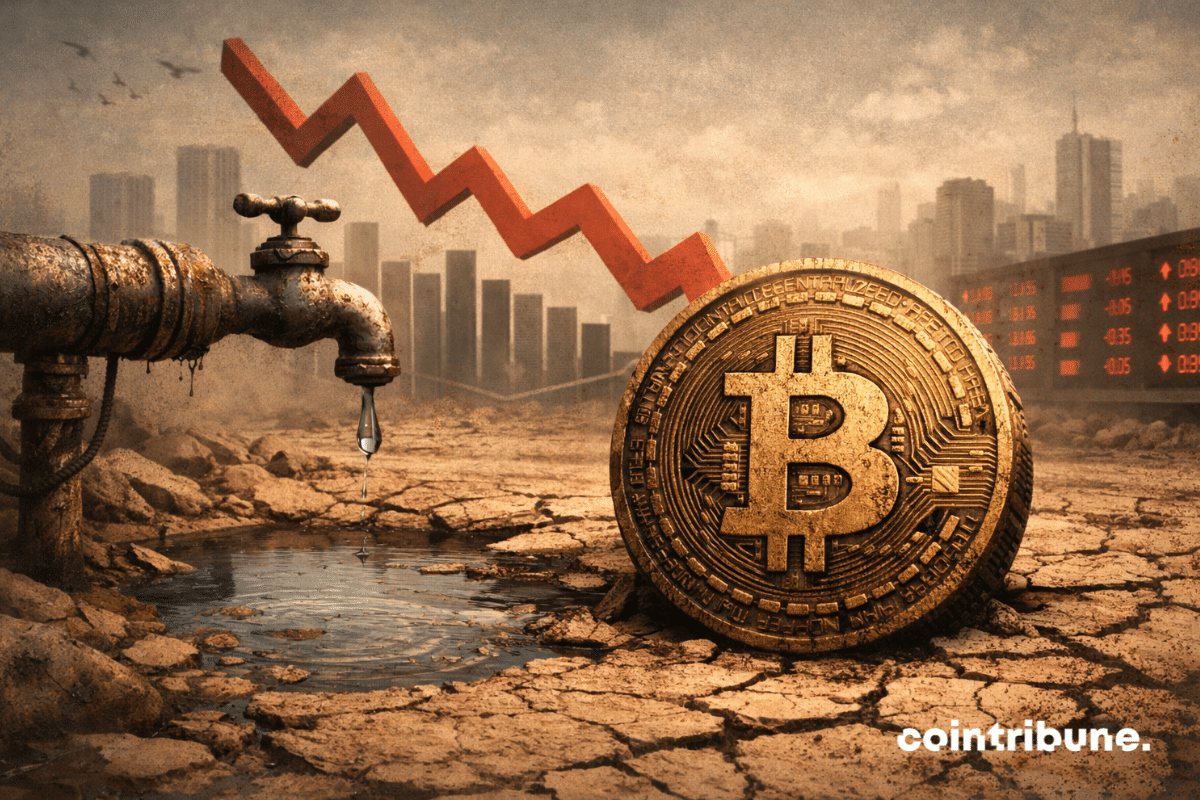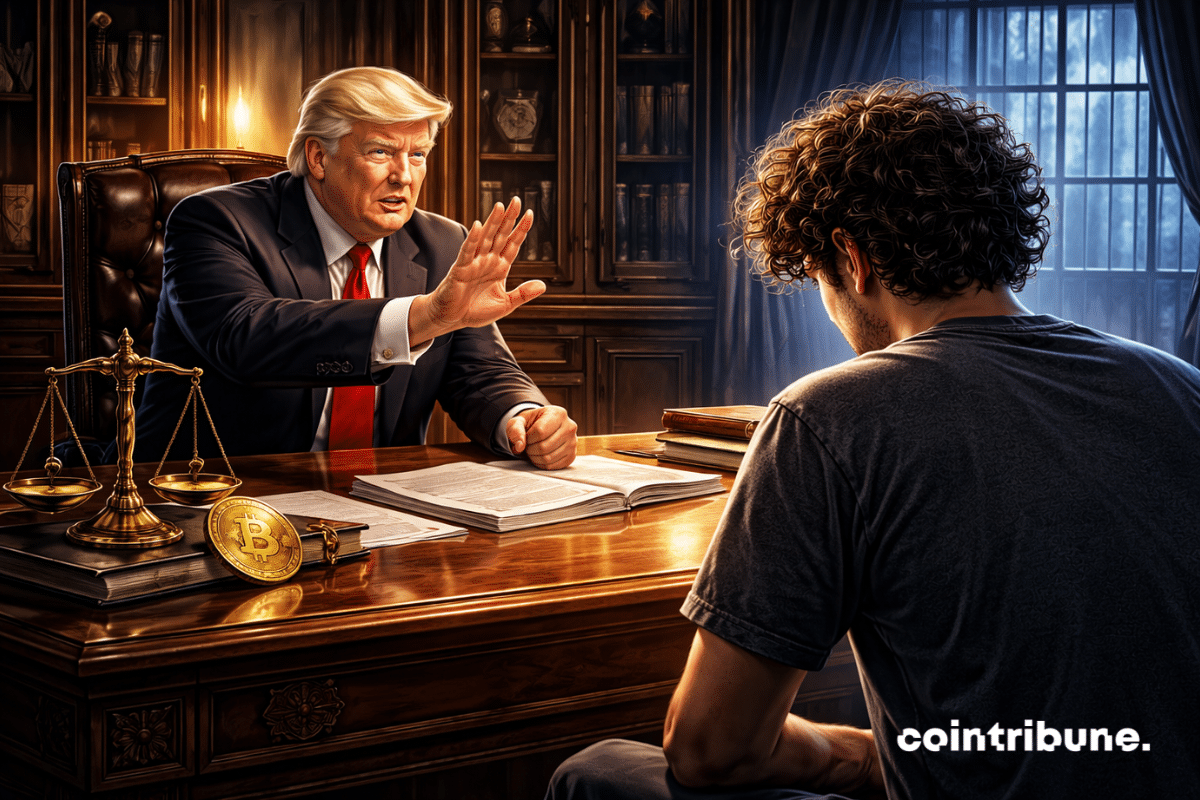Zcash collapses, Monero skyrockets! An unprecedented battle shakes the crypto market between two giants of privacy coins.
Cmc RSS
While Bitcoin naps, BitMine stacks ETH: one million staked, billions locked... and an ambition that would make even traditional finance blushing on Ethereum drip.
Barely relaunched in the United States, Polymarket is already facing local regulation. Tennessee has just issued an official injunction, accusing it of illegally offering contracts on sporting events. This decision, a first at the state level, could mark a turning point in the legal battle between blockchain platforms and state authorities. At the heart of the case is the legitimacy of predictive markets under federal regulation versus strict local gambling laws.
X, Elon Musk’s social network, is accused by Ki Young Ju (CryptoQuant) of censoring legitimate crypto content while failing to control bots. A revelation that raises questions about the future of decentralized exchanges and the credibility of social platforms. Why is crypto the target?
Today, Cointribune launches a brand new Read2Earn quest dedicated to a rapidly growing topic: Web3 gaming. Following the success of previous educational adventures, this quest takes you into the world of blockchain-based video games to help you understand the fundamentals, mechanisms, opportunities, and challenges of this video game revolution.
Memecoins live at a strange pace. Everything goes very fast, then nothing. On Solana, Pump.fun has been one of the main accelerators of this dynamic. But when a platform grows, every setting becomes political. Even a simple fee.
While crypto coughs, SharpLink stacks millions on Ethereum: from staking to restaking, the company turns its digital treasury into a well-oiled cash machine.
While traders were counting their losses, Binance was tinkering in the shadows: its blockchain is breaking records. A twist in the crypto jungle, the giant is gearing up for 2026.
Chainlink remains stuck in a micro-range, between $12 and $16, leaving traders waiting for a strong signal. As the crypto market hesitates, opportunities hide in the technical details. Should we anticipate a breakout or a rebound?
The American crypto law that was supposed to finally "put things in order" today looks like a rocket ready to launch... with a stuck pin. This pin is an ethics clause. And it might be enough to derail the whole rest. In short: Democratic senators demand safeguards against conflicts of interest. Without that, they threaten to withdraw their votes. Ruben Gallego even talks about a "red line".
Facing a crypto ecosystem in search of clear landmarks, Nasdaq and CME Group combine their expertise to establish a new benchmark index. With the Nasdaq CME Group Crypto Index, the two giants aim to structure a still fragmented market by providing a robust, transparent, and calibrated framework for the needs of institutional investors. A strategic initiative that could redefine the standards of crypto exposure in traditional finance.
On-chain data reveals a troubling trend: Bitcoin whales have sold 220,000 BTC in one year. A massive leak or anticipation of an imminent crash? Analysis of causes, risks, and opportunities to seize before it's too late.
On January 10, 2009, Hal Finney wrote "Running Bitcoin" on Twitter. Unknown to him, he had just engraved the public launch of the first decentralized digital currency network into modern monetary history. That day, he ran Satoshi Nakamoto's software and became the very first recipient of a BTC transaction. Seventeen years later, yesterday January 10, 2026, this message still echoes as the founding act of a technological and financial revolution.
While small wallets tremble, banks are piling up bitcoin. CZ watches, half amused, half worried: the crypto Wild West is changing sheriffs without warning.
The hope for sustainable institutional adoption through spot Bitcoin ETFs meets a harsh return of volatility. Praised in 2024 as vectors of stability, these products have just recorded over 680 million dollars in net outflows in the first week of 2026. This sudden decline, in a climate of monetary uncertainties and geopolitical tensions, calls into question the solidity of their anchorage in traditional finance and raises doubts about the market's ability to absorb shocks in the long term.
Vitalik Buterin draws a parallel between Ethereum and Linux. Goal: to revolutionize digital governance. Details here!
Pump.fun has just made crypto history by exceeding 2 billion dollars in daily volume thanks to Solana memecoins. Between rapid opportunities and legal risks, this explosion raises questions: sustainable revolution or bubble ready to burst?
A crypto user known as “The Smart Ape” lost about $5,000 from a hot wallet during a short hotel stay. No phishing links were opened, and no fake sites were used. Instead, a chain of small missteps created the conditions for a delayed wallet drain. Security researchers say the case shows how everyday actions, both online and offline, can combine into a serious loss.
Bitcoin is nearing 90,000 dollars, but the main action is happening elsewhere. While ETFs suffer massive outflows, institutional investors are beginning a strategic repositioning. This double movement, discreet but structuring, reveals a market in transition, where capital flows no longer respond solely to price logic. Behind the apparent euphoria, a rigorous selection of assets is taking place, a sign of a new maturity in the crypto ecosystem.
Solana is changing its status. Long perceived as a fast alternative to Ethereum, the blockchain now attracts leading institutional investors. This rise comes as the network consolidates its technical fundamentals. The accumulation of SOL by specialized funds fuels a new dynamic, at the crossroads of real uses and financial flows. At the start of this year, Solana no longer just promises: it establishes itself as a structuring player in the ecosystem.
While the US Supreme Court plays the role of economic arbitrator, Bitcoin itself meditates at $90,000, like a tired crypto king waiting for a judge to revive its digital crown.
The crypto sector, already weakened by tax issues and complex regulation, faces a new threat: the leak of sensitive data. An investigation in France reveals that a tax agent allegedly exposed private information about crypto owners. This revelation raises concerns about the security of tax data and the increased risk of physical attacks against investors. Such a scandal highlights the vulnerabilities of a system meant to protect citizens' confidentiality.
At the beginning of 2026, memecoins establish themselves as the stars of the crypto market. PEPE, Dogecoin and Shiba Inu record spectacular gains, driven by massive whale accumulations and short position liquidations. This spectacular rebound, marked by a 20% increase in the sector's capitalization in a few days, raises questions: is it a simple technical rebound or the start of a new memecoin season?
Rising global sanctions and increased state involvement drove illicit cryptocurrency activity to record levels in 2025. Data indicates that sanctioned entities were the primary source of these flows, even though illegal use continued to account for only a small portion of total crypto transactions. Analysts describe the shift as a response to mounting geopolitical pressure rather than a breakdown in compliance.
Bitcoin's price has been stuck in a narrow range as capital flow slows, leading to a period of consolidation. Experts predict continued sideways movement until market conditions shift.
Iran now offers to sell advanced weapons systems to foreign governments in exchange for cryptos. These include ballistic missiles, armed drones, and warships. Iran aims to bypass Western financial controls and maintain its military exports despite sanctions.
In Manosque, France, a woman experienced a true nightmare: kidnapped and assaulted at gunpoint for cryptos. This shocking news story reveals an alarming trend, criminals increasingly targeting holders of digital assets. Why this violence and how to protect yourself? The investigation and answers in this article.
Donald Trump has refused to grant a pardon to Sam Bankman-Fried, the former CEO of FTX, involved in one of the biggest scandals in crypto history. This decision, far from anecdotal, raises questions about the balance between politics and the crypto industry. It also raises issues about sector regulation and the future of executives accused of fraud, in a context where investor and regulator confidence is already weakened.
Morgan Stanley has never been the type to chase trends. So when the bank announces a digital asset wallet, designed for crypto but also for tokenized real-world assets (RWA), the signal is clear. Wall Street no longer just wants to “tolerate” the sector, it wants to hold the keys. According to Barron’s, this digital wallet is expected to launch in 2026 and aim, from the start, at a hybrid mix: crypto on one side, real-world assets (stocks, bonds, real estate) on the other.
Bitcoin, born as a decentralized currency, could become a key player in the global economy by 2050. According to a study by VanEck, one of the leading crypto asset managers, the value of bitcoin could reach 2.9 million dollars as it establishes itself as a settlement currency in international trade and as a reserve for central banks. This bold scenario raises questions about the future of traditional currencies and bitcoin's place in the global financial system.

